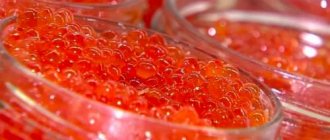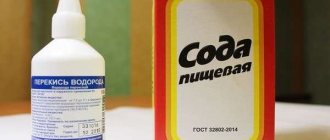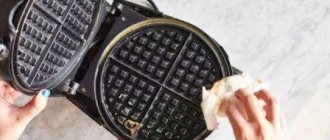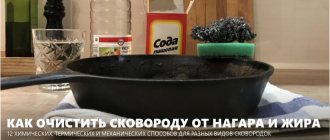Sometimes a purchased female pink salmon, trout, and, if you’re lucky, fish from the sturgeon family may contain caviar. But what should you do with it, shouldn’t you throw it in a frying pan? It turns out that you can peel the caviar from the film and then salt it even at home. The prepared delicacy will contain all the valuable substances: Omega-3 fatty acids, minerals, vitamins, and a set of amino acids. It is also recommended to remove the film and prepare the caviar of pike or carp brought home from fishing. Homemade caviar is not stored for the same long period as canned caviar, which contains preservatives. However, it is much more tender and tastier.
Using a mixer
If you have several kilograms of caviar, you can use a mesh (screen) instead of a mixer. For a small amount of raw materials, an ordinary household mixer with snake attachments is sufficient. The algorithm of actions is as follows:
- place the egg with the eggs in the container;
- set the mixer speed to minimum;
- beat gently, without pressing, moving along the film and gradually collecting it;
- Remove the eggs stuck to the mixer whisk with your hands;
- rinse and add seasonings to taste.
Note! Do not try to speed up the process by setting the device to high speed, otherwise the eggs will scatter throughout the room during the cleaning process.
How to fix the taste if homemade caviar is too salty
Sometimes it may happen that the caviar turns out too salty.
Don't be upset. Cool boiled water will help. You need to pour a couple of spoons of over-salted caviar with it, mix and taste after 5 minutes. If there is still a lot of salt, you need to add a couple of minutes. The washed eggs are poured onto cheesecloth in a colander. Once all the water has gone, you can use it.
No matter how salty the caviar is, you only need to rinse the amount needed at one time. The washed delicacy spoils very quickly.
Excess salt in the delicacy can be hidden when used with unsalted foods. For example, it is not necessary to soak eggs that will be used for sandwiches with butter and baguette, or unleavened puff vol-au-vents. Small quantities of salted caviar are used to decorate boiled quail eggs served on the festive table.
Grater
You can quickly remove the transparent film from caviar using a kitchen grater. The process will require a side with large cells. Cooking process:
- carefully, without squeezing the eggs, grate the egg;
- when all the film is cleaned off, add a tablespoon of salt to the caviar and pour hot water over it;
- after 20 minutes, pass through cheesecloth, and remove the remaining pieces of film with a fork.
Note! 100 g of pink salmon caviar contains 230 kcal. The glycemic index of the product is 5. Regular consumption of the delicacy will have a positive effect on the functionality of the entire body and prevent the development of diseases.
Boiling water and whisk
To remove the film from caviar using boiling water and a whisk, you will need a large container. But keep in mind that even if the pan is too large, you should not put more than two bags of caviar in it - this will complicate the process. Algorithm of actions:
- Place a container of cold water on the fire and wait until it boils;
- put the egg there and start stirring it with a whisk;
- in boiling water, the film will begin to curl and stick to the whisk blades;
- continue stirring until all the eggs are cleared;
- then drain the water and start salting.
Note! This method requires a certain skill, speed and accuracy. Just gape a little and your caviar will be cooked in boiling water.
Using a sieve
After washing the egg under running water, make several neat cuts on it and place it in a sieve with large mesh (so that the eggs pass freely through the sieve). Place a plate underneath. Distribute the raw materials over the entire surface and carefully pass the eggs through the holes into the plate. The film bag will remain on the inside of the sieve. It can be removed with a fork.
Gauze and fork
To quickly clean caviar from the film, arm yourself with a dinner fork and a meter-long piece of gauze:
- fill two large containers: one with boiling water, the second with cold water;
- fold the gauze in two layers and place the yashtik there;
- lower the contents of the gauze into a bowl of hot water for 1 minute, stirring lightly;
- Place the gauze in a bowl of cold water;
- during the alternation process, the film will curl; All you have to do is pry it off and remove it with a fork.
What cleaning tools are needed?
To work, you will definitely need clean water.
And from the tools:
- mixer;
- whisk for beating eggs;
- sieve;
- grater;
- fork;
- gauze.
Although you can separate the jastik with your hands - it all depends on the skills and how convenient this or that technique is for the hostess.
Did you know? Salmon red caviar can range in color from pale yellow to intense orange. And its color does not depend on dyes, but on the type of fish, the temperature of the water in which it swam, the composition of its diet and even age.
Manual method
Now let's talk about how to remove the film from pink salmon caviar without having gauze, a sieve, a mixer or other useful equipment on hand. Pour hot water into a plate and begin separating the eggs with your hands:
- place the oyster in a plate of water;
- After 2 minutes, lightly press down the bag (softened in hot water, it can be easily removed with your fingers).
This is interesting! Just 100 g of fresh pink salmon caviar contains a complex of beneficial amino acids, saturated fatty acids, 30.6 g of proteins, 11.5 g of fat and only 1 g of carbohydrates.
Methods and duration of storage of pink salmon caviar salted at home
Simple home salting eliminates the use of industrial preservatives, so the shelf life of the product usually does not exceed 2 days (in the refrigerator).
When salted with butter, the delicacy can be stored for up to a week. If already salted caviar is carefully compacted and filled with odorless vegetable oil (3 tbsp), this will extend its consumer suitability to 5-7 days.
The product should be stored in the refrigerator in a tightly closed jar. After opening the jar, the shelf life of the product should be no more than 2 days.
If you freeze salted pink salmon caviar, it can be stored for 2 months. After salting, place it in small plastic containers, close tightly, and cool for 12 hours in the refrigerator. Then placed in the freezer. To defrost, you need to put it back in the general compartment of the refrigerator for 12 hours.
Salt water
This method differs from the previous one in only one way: the plate is filled not with ordinary water, but with ready-made brine:
- prepare the brine by dissolving 100 grams of coarse table salt in a liter of boiling water;
- place the bag of caviar in an enamel container;
- pour hot brine onto the bag (under the influence of hot brine, the film will begin to curl and it will be easy to separate it from the eggs).
Note! Do not leave the eggs in salt water for a long time, otherwise the eggs will cook and harden.
Salting trout caviar with vegetable oil at home
This caviar can be stored in the main compartment of the refrigerator for up to 14 days. Not very fast, but a “lazy” method that requires almost no active cooking.
What do you need:
- rainbow or other trout caviar – 1 kg;
- coarse salt – 2 tbsp. l.;
- vegetable oil – 2 tbsp. l.
Cooking technology:
Gradually add salt to the caviar, peeled from films, immediately mixing it with your hands or a spatula. Pour boiling water over small glass jars and dry. Place the caviar in a container. Spread the oil on top. Close the jars and put them in the refrigerator. The next day you can eat the snack.
Badminton racket
Without a wide-mesh sieve, experienced and resourceful fishermen remove eggs using a racket. The eggs easily slip through the large nylon mesh, and the film sticks to the fishing line. Procedure:
- wash the racket in dishwashing detergent and rinse in hot water;
- place a bag of caviar on the mesh;
- carefully, without pressing down the contents of the bag, wipe the eggs through the cells;
- Remove small particles of film remaining on the eggs with your hands.
Note! Do not press down on the yoke. Damaged eggs are unlikely to look appetizing.
Separating the film from trout caviar
It is reasonable to use the automatic method using a mixer if you have extensive experience in processing caviar. Otherwise, the risk of damage to the integrity of the eggs is very high.
After using the mixer, the caviar is placed in a sieve, washed with cool water, and left until the liquid drains. When the product dries, you can add salt.
Pike caviar has small eggs.
- To remove films, use a sieve.
- The joint is washed and cut.
- Rub the product through a coarse sieve carefully so as not to crush the eggs.
- The remaining pieces of film are removed with a fork, twisting it in the container.
Why is the film bag removed?
So we told you how to clean pink salmon caviar from the film. All that remains is to figure out why this is necessary, and whether it is necessary at all, because the oyster is not poisonous and is completely harmless to the body. However, experienced chefs who have “eaten the dog” when preparing red caviar assure that the presence of a film can spoil the pleasure of eating the delicacy. And that's why:
- The films get stuck between the teeth and cannot be removed without the help of a toothpick.
- Amber eggs with adhering particles of egg look, to put it mildly, unpresentable.
- The film gives the delicacy bitterness and a herring taste.
- Caviar salted in the shell is salted unevenly.
Useful tips
Cleaning pink salmon caviar is easy if you have fresh eggs on hand. We share the basics of choosing and preparing the right raw materials:
- To prepare red caviar at home, you will need a fresh female pink salmon with all its giblets. It is not difficult to distinguish it from a male: females have a faded color, a more rounded head and a less protruding lower jaw.
- Be extremely careful during the gutting process. If the gallbladder is damaged, it is better to immediately remove and throw away the roe - the caviar will instantly become saturated with bile, become bitter and inedible. The carcass itself can be saved by washing it under running cold water.
- It is necessary to clean the caviar from the film. Otherwise, the delicacy will be spoiled.
- Before removing the eggs from the bag, rinse it in a saline solution: 1 liter of hot water and half a teaspoon of iodized salt.
Salting the product at home is very useful. Not only is it not always possible to get really fresh caviar, but the factory product also contains a bunch of additives (so that the eggs do not dry out, so that they can be stored longer, and so on). While the homemade product does not contain chemicals, fresh eggs are elastic and burst on the teeth. And no mucus, which is often the “sin” of store-bought canned goods.
There is no need to talk about the benefits of home salting. Just think, one kilogram carcass contains approximately 80 - 130 g of caviar, and this despite the fact that you will buy this carcass for 230 rubles (and you will be preparing not only caviar). For comparison, a 100 g jar of the factory delicacy costs 350 rubles.
If you don’t want to spoil the gastronomic pleasure of eating a healthy product, don’t be lazy. Moreover, now you know how to quickly clear pink salmon caviar from the film using the usual tools and without them.
Salting
Without salt, the purified product quickly deteriorates. Red and black caviar require different amounts. If the meat was kept in brine for a long time during processing, salt should be excluded from the list of ingredients. Prepared caviar should be stored refrigerated in a glass jar. For quick salting, you can only use fresh caviar. Thawed salt will take twice as long. Defrost the product only naturally, and not in warm water or in the microwave.
You need fine, clean salt, the so-called table salt, without iodine and other foreign impurities.
Sturgeon caviar
Instant black caviar is kept in the marinade for 15 minutes. If you plan to keep it in the refrigerator for more than 2 weeks, the holding time is increased to half an hour. Salting is done as follows:
- Bring water to a boil.
- Add salt (50-60 g per 1 l) and sugar (30 g per 1 l). Stir until completely dissolved.
- Remove the pan from the heat.
- When the marinade has cooled to room temperature, pour it into the container with caviar (200 ml for every 100 g).
- Wait 15 minutes and drain the brine.
- Transfer the caviar into a glass jar.
Red caviar
Pour chilled marinade over pink salmon, salmon or trout caviar. After 6-7 minutes, drain in a colander and allow the liquid to drain. Transfer the finished product into a glass jar. The marinade should be cooked for 12-15 minutes before use, ingredients:
- peeled caviar – 200 g;
- water – 1 l;
- salt – 200 g;
- sugar – 100 g.
Adding a small amount of vegetable oil gives it a rich taste. Fill a glass jar with caviar and fill completely with brine. Cover with a lid and refrigerate. After 3-4 hours, pour the contents into a colander and wait until the brine drains. Pour the caviar into a bowl, add oil, stir. Salt and sugar are diluted in cold water:
- caviar – 100 g;
- water – 250 ml;
- salt – 2 tsp;
- sugar – 1 tsp;
- olive oil – 1 tbsp. l.
Salting without brine:
- caviar – 250 g;
- salt – 0.5 tbsp. l.;
- sugar – 0.5 tsp.
Place the ingredients in a bowl and mix. Cover with a saucer, place a light weight (100-150 g) on top, and put in the refrigerator. After 4-5 hours it can be removed and the caviar can be used for its intended purpose.











